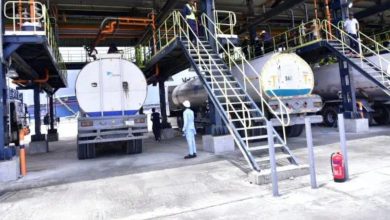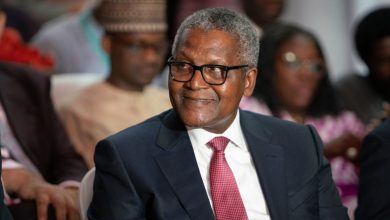Dangote Refinery Opposes FCCPC Renewed Bid to Join N100 Billion Import License Lawsuit
Dangote Refinery has again opposed FCCPC’s bid to join its ₦100bn lawsuit on petroleum licensing.
The court ruled FCCPC has no legal role, as Dangote pushes to protect its refining and import rights.
Dangote Petroleum Refinery and Petrochemicals FZE has again challenged the Federal Competition and Consumer Protection Commission (FCCPC) move to participate in its ongoing N100 billion lawsuit over petroleum import licenses. At a resumed hearing on Thursday, the refinery’s counsel, George Ibrahim, SAN, told the Federal High Court in Abuja that the FCCPC had no legal grounds to be involved in the matter, describing the Commission as a “meddlesome interloper.”
Earlier this year, on March 18, 2025, the court, presided over by Justice Inyang Ekwo, dismissed the FCCPC first attempt to be joined in the suit, ruling that the Commission failed to establish its relevance to the core issue, which is governed under the Petroleum Industry Act (PIA). Despite the ruling, the FCCPC reapplied, prompting another legal face-off.
The refinery’s case, marked FHC/ABJ/CS/1324/2024, seeks to nullify the import licenses granted by the Nigerian Midstream and Downstream Petroleum Regulatory Authority (NMDPRA) to several oil firms, including the Nigerian National Petroleum Company Limited (NNPCL), Matrix Petroleum Services Ltd., and A.A. Rano Ltd, among others.
In its application, the FCCPC claimed the suit could have adverse implications on market competition, warning it might enable a monopoly by the Dangote Refinery. The Commission argued that allowing only one refinery to operate while barring others from using their licenses would be anti-competitive, undermining Nigeria’s free-market economy principles.
However, Ibrahim countered these assertions, insisting that the refinery’s aim is not to dominate the market but to ensure the revitalization of local refining capacity. He said the NMDPRA granted his client the necessary licenses under the PIA to import and refine petroleum products, which the refinery is already capable of supplying in line with national demand.
“The Act does not empower the FCCPC to issue licenses or levy companies operating in this sector. Their role here is completely outside the scope of the law,” Ibrahim told the court.
The FCCPC’s lawyer, Terhemba Gbashima, maintained that the matter involved consumer rights and reiterated that the Commission had filed an appeal after its joinder request was denied. He informed the court that a motion for a stay of proceedings had been filed earlier but was withdrawn. He argued that proceeding without the FCCPC’s involvement would sideline consumer interests.
Justice Ekwo disagreed, noting that the Court of Appeal had not granted any stay order and that the Commission’s appeal did not automatically halt proceedings in the lower court. He affirmed that the FCCPC continued participation was unnecessary at this stage.
The court has now fixed September 29, 2025, for a hearing in the main suit and directed that hearing notices be sent to all the involved parties.
This legal dispute highlights growing tensions in Nigeria’s downstream oil sector, particularly over who controls access to petroleum product imports. Dangote’s 650,000 barrels-per-day refinery, the largest in Africa, is seen as a potential game-changer, but concerns about monopolistic control have drawn regulatory and legal scrutiny.
In 2024, Aliko Dangote, owner of the refinery, expressed openness to selling stakes to NNPCL amid mounting disagreements with equity partners and government bodies. Dangote has also criticized some competitors for allegedly importing low-quality fuels into the country.
The federal government eventually approved direct product sourcing from Dangote Refinery by marketers, eliminating NNPCL as the go-between, a move that significantly changed the dynamics of product distribution in Nigeria.
Meanwhile, a separate preliminary objection filed by the NNPCL to challenge the refinery’s lawsuit was earlier dismissed by the same court for being incompetent.
The outcome of this high-profile case may shape the future structure of petroleum imports in Nigeria and set the tone for how local refining will coexist with open-market competition under the new regulatory framework introduced by the PIA.



